Related Research Articles

Lincoln Edward Davis is an American politician and the former U.S. Representative for Tennessee's 4th congressional district. He is a member of the Democratic Party. He is a member of the ReFormers Caucus of Issue One.
The 1908 United States House of Representatives elections were held for the most part on November 3,1908,with Oregon,Maine,and Vermont holding theirs early in either June or September. They coincided with the 1908 United States presidential election,which William Howard Taft won. Elections were held for all 391 seats of the United States House of Representatives,representing 46 states,to serve in the 61st United States Congress.

The 1904 United States House of Representatives elections were held for the most part on November 8,1904,with Oregon,Maine,and Vermont holding theirs early in either June or September. They coincided with the election to a full term of President Theodore Roosevelt. Elections were held for 386 seats of the United States House of Representatives,representing 45 states,to serve in the 59th United States Congress.

The 1900 United States House of Representatives elections were held for the most part on November 6,1900,with Oregon,Maine,and Vermont holding theirs early in either June or September. They coincided with the re-election of President William McKinley. Elections were held for 357 seats of the United States House of Representatives,representing 45 states,to serve in the 57th United States Congress. Special elections were also held throughout the year.

The 1896 United States House of Representatives elections were held for the most part on November 3,1896,with Oregon,Maine,and Vermont holding theirs early in either June or September. They coincided with the election of President William McKinley. Elections were held for 357 seats of the United States House of Representatives,representing 45 states,to serve in the 55th United States Congress. The size of the House increased by one seat after Utah gained statehood on January 4,1896. Special elections were also held throughout the year.

The 1866–67 United States House of Representatives elections were held on various dates in various states between June 4,1866,and September 6,1867. They occurred during President Andrew Johnson's term just one year after the American Civil War ended when the Union defeated the Confederacy. Each state set its own date for its elections to the House of Representatives. Members were elected before or after the first session of the 40th United States Congress convened on March 4,1867,including the at-large seat from the new state of Nebraska. Ten secessionist states still had not yet been readmitted,and therefore were not seated.

The 1864–65 United States House of Representatives elections were held on various dates in various states between June 5,1864,and November 7,1865,in the midst of the American Civil War and President Abraham Lincoln's reelection. Each state set its own date for its elections to the House of Representatives. Members were elected before the first session of the 39th United States Congress convened on December 4,1865,including the at-large seat from the new state of Nevada,and the 8 from Tennessee,the first secessionist state to be readmitted. The other 10 secessionist states had not yet been readmitted,and therefore were not seated.
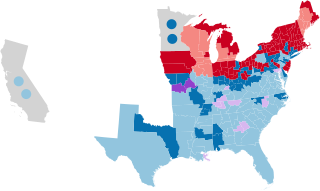
The 1856–57 United States House of Representatives elections were held on various dates in various states between August 4,1856,and November 4,1857. Each state set its own date for its elections to the House of Representatives. 236 representatives were elected in 31 states and the pending new state of Minnesota before the first session of the 35th United States Congress convened on December 7,1857.
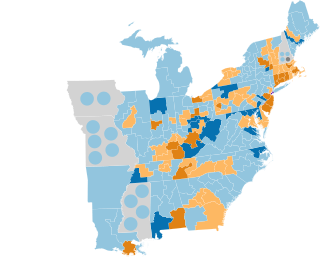
The 1844–45 United States House of Representatives elections were held on various dates in various states between July 1,1844,and November 4,1845. Each state set its own date for its elections to the House of Representatives. 224 elected members representing 27 states took their seats when the first session of the 29th United States Congress convened on December 1,1845. The new state of Florida elected its first representative during this election cycle,while one vacancy in New Hampshire's delegation remained unfilled for the duration of the 29th Congress.

The 1842–43 United States House of Representatives elections were held on various dates in various states between August 1,1842,and November 8,1843. Each state set its own date for its elections to the House of Representatives before the first session of the 28th United States Congress convened on December 4,1843. The exception was Maryland,who held theirs so late that they ran into February 1844. These elections occurred during President John Tyler's term. The congressional reapportionment based on the 1840 United States census unusually decreased the number of House seats,from 242 down to 223.

The 1834–35 United States House of Representatives elections were held on various dates in various states between July 7,1834,and November 5,1835. Each state set its own date for its elections to the House of Representatives before the first session of the 24th United States Congress convened on December 7,1835. They were held during President Andrew Jackson's second term. Elections were held for 240 seats that represented 24 states,as well as the at-large-district seat for the pending new state of Michigan.
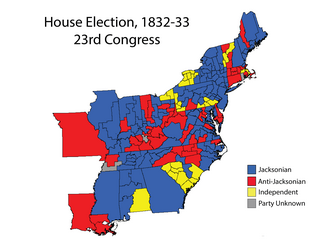
The 1832–33 United States House of Representatives elections were held on various dates in various states between July 2,1832,and October 7,1833. Each state set its own date for its elections to the House of Representatives before the first session of the 23rd United States Congress convened on December 2,1833. They were held concurrently with the 1832 presidential election,in which Democrat Andrew Jackson was reelected. The congressional reapportionment based on the 1830 United States census increased the size of the House to 240 seats.
Jamie Roberts Woodson,is the executive chairperson and chief executive officer of the State Collaborative on Reforming Education (SCORE),a Tennessee-based nonprofit and nonpartisan education research and advocacy organization. Previously she served as a state senator in the Tennessee General Assembly (2005–11) and was Speaker Pro Tem and Chairman of the Senate Education Committee. Earlier she served three two-year terms in the state House of Representatives.
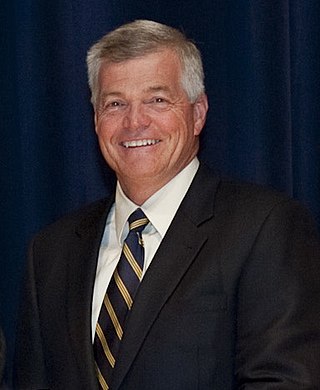
Jim Tracy is an American politician and was the Tennessee Director for Rural Development for the first Trump Administration. He is a former member of the Tennessee Senate for the 14th district,which is composed of Bedford County,Moore County,and part of Rutherford County.
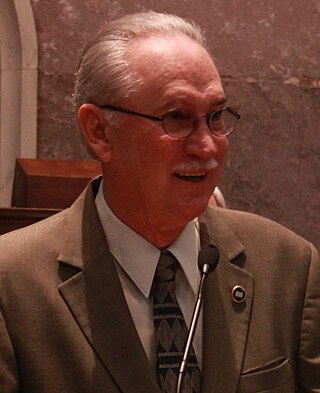
Kent Williams was a member of the Tennessee House of Representatives,first elected in 2006 to the Tennessee House of Representative as a Republican from House District 4 (then entirely then Carter County in 2006 and reelected to the House in 2008.
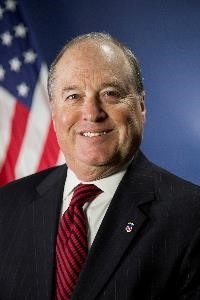
Doug Overbey is an American lawyer and former politician who served as the United States Attorney for the Eastern District of Tennessee from 2017 to 2021. Prior to becoming the U.S. Attorney,he represented District 2 in the Tennessee Senate as a Republican from 2009 to 2017. Overbey was chairman of the Senate Ethics Committee and vice-chairman of the Senate Judiciary Committee and the Senate Finance Committee. He is a senior partner and co-founder of the Robertson Overbey law firm and has served as an adjunct faculty member at the University of Tennessee College of Law. Prior to becoming a state senator,Overbey served in the Tennessee House of Representatives from 2000 to 2008. On February 8,2021,he along with 55 other Trump-era attorneys were asked to resign.

Jimmy Matlock is an American politician,business owner,and Republican member of the Tennessee House of Representatives for the 21st district,encompassing Lenoir City,and parts of Loudon County and Monroe County. He served from 2007 to 2019. He succeeded Russell Johnson. Matlock was succeeded by Lowell Russell.

William Gary Lamberth is an American politician. He serves as a Republican member of the Tennessee House of Representatives for the forty-fourth district,encompassing parts of Sumner County,Tennessee.
Ron Travis is an American politician. He serves as a Republican member of the Tennessee House of Representatives for the 31st district,encompassing parts of Bledsoe,Roane,Sequatchie and Rhea Counties. He was last elected November 6,2018 and he has been in office for 7 years. His term ends in 2020.
John Ray Clemmons is an American politician from the state of Tennessee. A member of the Democratic Party,he serves in the Tennessee House of Representatives,representing the 55th district,in West Nashville.
References
- ↑ "Our Campaigns - TN State House 26 Race - Nov 02, 2004".
- ↑ "Our Campaigns - TN State House 26 Race - Nov 08, 2016".
- 1 2 "Official website". Archived from the original on 2014-08-07. Retrieved 2011-04-16.
- 1 2 3 4 5 6 7 8 9 10 11 "Representative Gerald McCormick - TN General Assembly". Tennessee General Assembly. Archived from the original on September 9, 2018.
{{cite web}}: CS1 maint: unfit URL (link) - 1 2 3 4 5 6 "Official website biography". Archived from the original on 2011-08-17. Retrieved 2011-04-16.
